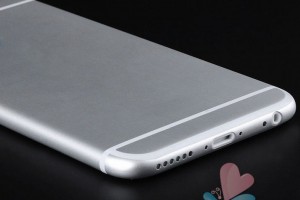 Apple is finally taking its mobile payment service worldwide, starting with the British roll out of apple pay on Tuesday.
Apple is finally taking its mobile payment service worldwide, starting with the British roll out of apple pay on Tuesday.
Apple announced its UK expansion plans at June’s Worldwide Developers Conference. Seven financial institutions are supporting Apple Pay at launch, including American Express, MBNA, Nationwide, Santander, Royal Bank of Scotland, NatWest, and Ulster Bank. Notable holdouts include Barclays and, surprisingly, HSBC. HSBC was expected to be one of Apple Pay’s launch partners, but the bank announced that it won’t support the service until the end of July. Barclays has its own contactless payment service, Pay, but reversed its opposition to Apple Pay on Tuesday with a supportive tweet.
Aside from HSBC, six more banks will sign on with Apple Pay in the near future. Bank of Scotland, First Direct, Halifax, M&S Bank, Lloyds Bank, and TSB are listed on Apple Pay’s UK site as “coming soon.”
Why this matters: Apple Pay’s worldwide rollout is a huge leap forward in terms of gaining mainstream acceptance, but the fact that Apple couldn’t line up all of Britain’s major banks in time to launch could hinder its appeal. The service works the same in Britain as it does in the States: Owners of Apple Watches or I Phone 6 and 6 plus models will be able to tap to pay in-store, while I Pad Air 2 and I Pad mini 3 users will be able to use Apple Pay in apps.
But there’s a limit on how much you can spend with Apple Pay in Britain at most retail stores. Right now, buyers can make purchases up to £20 using the service, with that limit rising to £30 in September. The same applies to all contact less payments in the region, not just Apple Pay.British shoppers will be able to use Apple Pay at more than 250,000 retail locations, including popular chains like Boots, Marks & Spencer, and Wait rose.. London’s public transit system, which already supports other forms of contactless payments, will also support Apple Pay.






